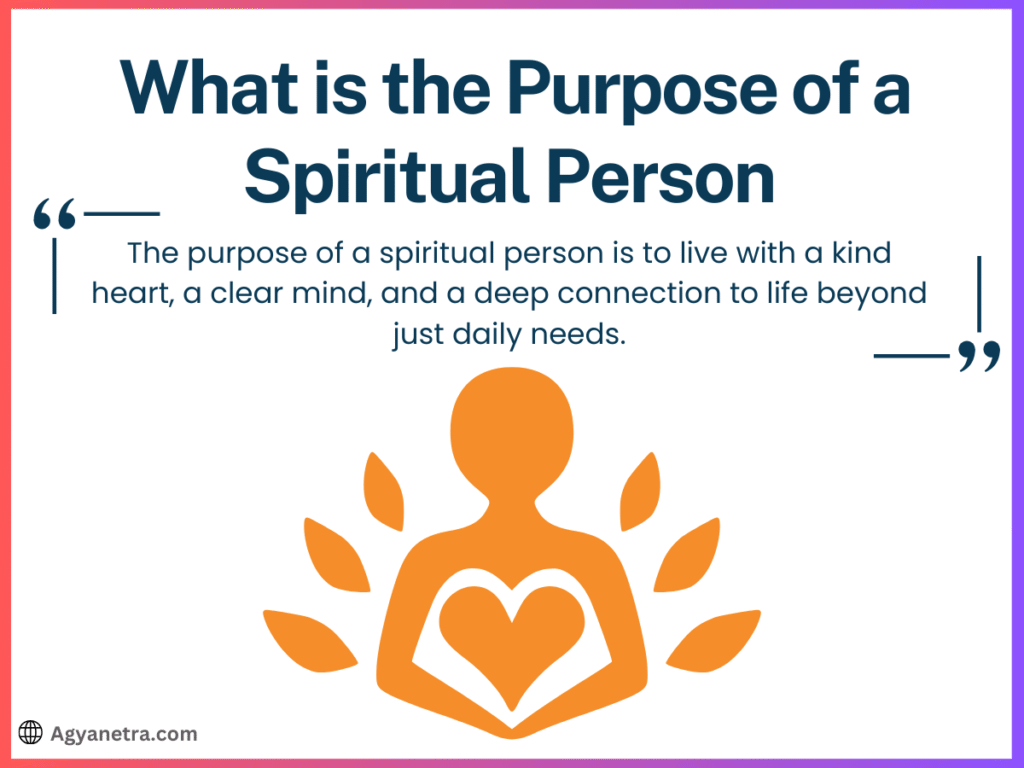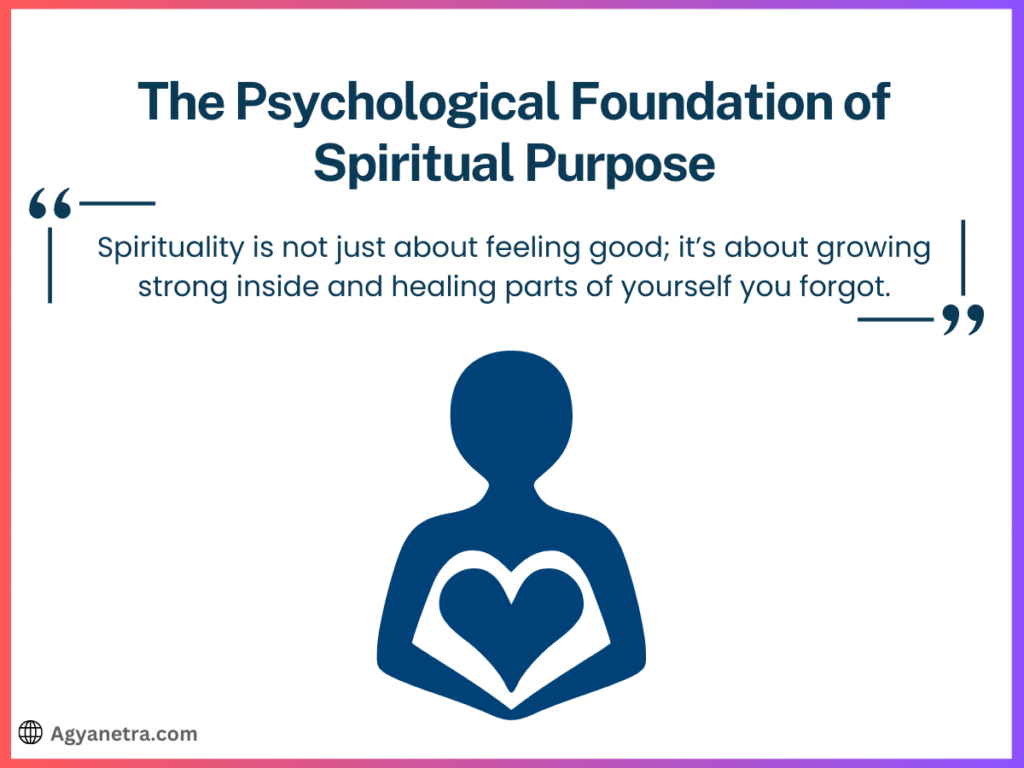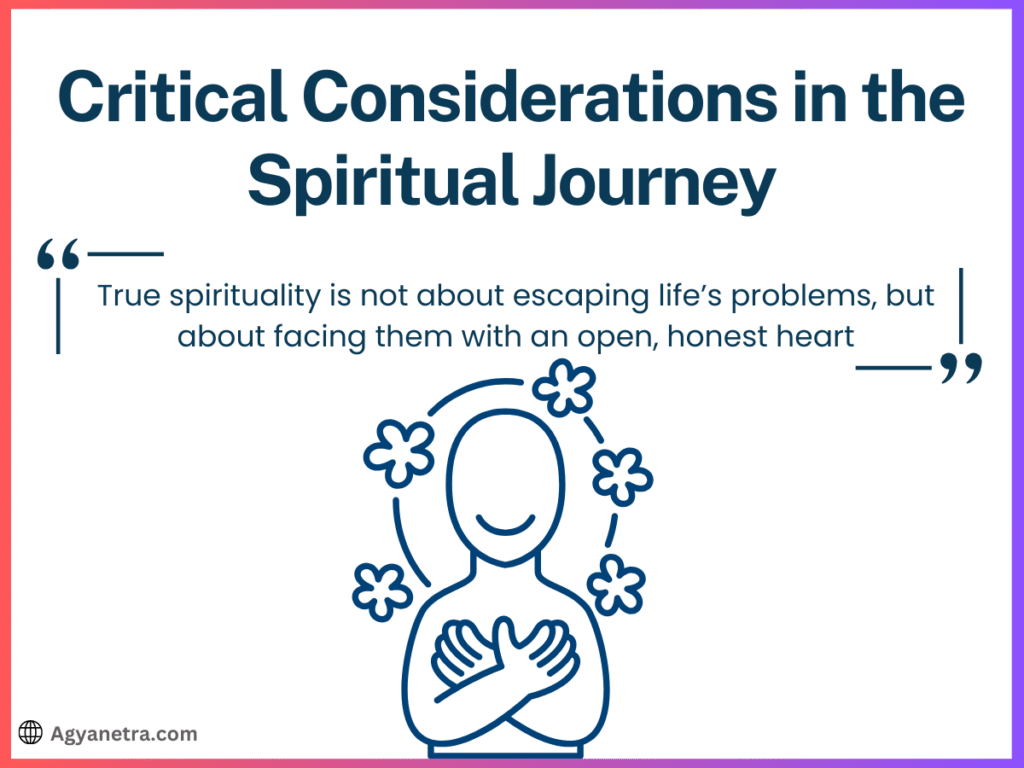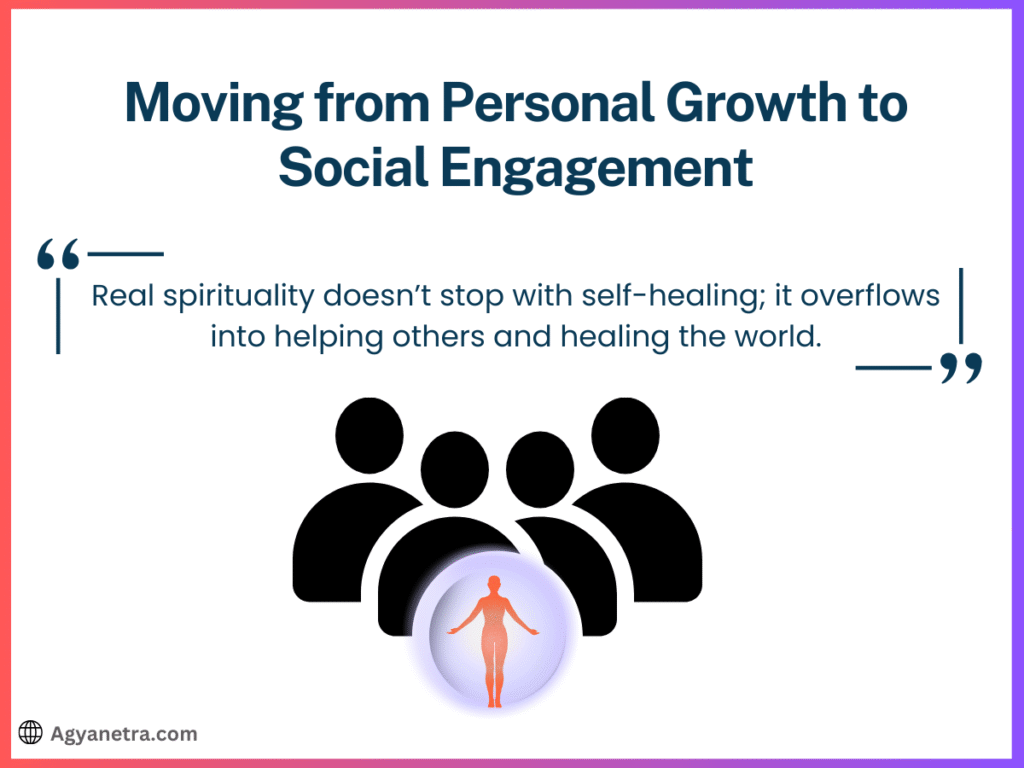What is the Purpose of a Spiritual Person is a question many people quietly wonder about when they start feeling there’s more to life than just work, money, and daily routines.
If you’ve ever felt that way, you’re not alone. Spirituality opens the door to a deeper, richer way of living—and it’s much more than just meditation or prayers.
In the FAQs below, you’ll discover simple answers to common questions about spirituality, the purpose behind being spiritual, the qualities of spiritual people, and how spirituality can change your life.
Whether you’re just starting your journey or already on the path, these insights will help you connect with your true self and understand your spiritual purpose even better.
Keep reading—you might just find the clarity you’ve been looking for!
What is the Purpose of a Spiritual Person? Deeper Meaning and Life Goals
In a world that’s rapidly modernizing yet still deeply curious about spirituality, the question, What is the purpose of a spiritual person?
feels more important than ever. Today, being spiritual isn’t just about rituals or religious practices.

It’s about finding a deeper meaning, living with more awareness, and building a life that feels truly connected from within.
Let’s explore how spirituality shapes our inner and outer world in simple, practical ways.
The Search for Meaning
Spirituality begins with a longing for something greater than material success. When life feels full on the outside but empty within, the search for meaning starts.
This desire is natural and reflects what psychologist Abraham Maslow called “self-transcendence”—the stage where we seek purpose beyond our personal needs.
For example, even after achieving financial security, many people feel a void.
A spiritual person recognizes this gap and tries to fill it, not with more achievements, but with inner growth.
As Carl Jung beautifully said, “Who looks outside, dreams; who looks inside, awakens.”
Here, spirituality helps people find fulfillment through connection, gratitude, and a sense of belonging to something much larger than themselves.
More Posts Like This
- How Spirituality Heals and Transforms Your Life
- How Hinduism Defines Twin Flames
- What Is Kundalini Awakening? Benefits and Symptoms
- What Are the Physical Symptoms of a Spiritual Awakening
The Psychological Foundation of Spiritual Purpose
To truly understand the purpose of a spiritual person, we must look at how spirituality impacts mental health and emotional well-being.

Spiritual practices help individuals grow emotionally, face their fears, and build resilience.
Spirituality isn’t just about feeling good; it’s about becoming whole. Let’s dive into the psychological pillars that support this journey.
Integrating the Shadow
Every person has parts of themselves they hide or deny—the “shadow,” as Carl Jung called it.
For instance, someone may suppress their anger or sadness, believing these emotions are bad.
A spiritual person works on recognizing and accepting these hidden parts, understanding that wholeness comes from embracing every emotion, not just the positive ones.
This integration can be uncomfortable but is deeply healing, leading to emotional maturity and self-acceptance.
Meaning-Making in Life
When life feels overwhelming or painful, spirituality offers a way to create meaning.
Viktor Frankl, who survived the Holocaust, emphasized that humans are driven not just by pleasure or power but by a deep will to find meaning.
Imagine facing a personal loss. Instead of falling into despair, a spiritual person asks, “What can this teach me?
How can I grow from this?” Building meaning out of suffering transforms pain into wisdom, giving life depth and richness.
Transforming Perspective
Psychologist Robert Kegan observed that spiritual growth helps people see reality in more complex and compassionate ways.
It’s about moving from rigid thinking to flexible, open-hearted understanding.
For example, when someone stops seeing problems as obstacles and starts viewing them as opportunities for growth, they are experiencing a profound shift in perspective—a hallmark of true spiritual development.
Cultivating Presence
In today’s fast-paced world, being fully present is rare. Spiritual traditions have always emphasized the importance of mindfulness—the art of living in the now.
Research shows that practicing mindfulness reduces anxiety and improves emotional well-being.
A spiritual person learns to savor the small moments: the smile of a loved one, the feeling of sunshine on the skin, or even the simple act of breathing.
Presence becomes a way of life, allowing deeper connections and inner peace.
Critical Considerations in the Spiritual Journey
While spirituality has immense benefits, it’s also important to stay aware of its potential pitfalls.

True spiritual growth includes recognizing and addressing these issues.
Avoiding Escapism
Sometimes, people use spirituality to run away from real-life problems. Instead of facing challenges head-on, they might hide behind meditation or philosophy.
True spirituality encourages courage, not avoidance.
Guarding Against Spiritual Bypassing
Spiritual bypassing happens when people use spiritual ideas to skip necessary emotional healing.
For example, saying “Everything happens for a reason” without acknowledging someone’s real pain can be harmful.
A spiritual person stays compassionate and honest about emotions—both their own and others’.
Watching for Ego Inflation
Achieving spiritual milestones—like intense meditation experiences—can sometimes make people feel superior.
But real spiritual growth is humble. It’s not about being “better” than others; it’s about being more connected to everyone.
Respecting Cultural Roots
Adopting spiritual practices like yoga or meditation without understanding their cultural significance can be disrespectful.
A true spiritual person honors the history and depth of the traditions they practice, approaching them with respect and gratitude.
Intuition and Direct Knowing
Beyond logical reasoning, spirituality taps into intuition—a deep, inner sense of knowing. Intuition isn’t about guessing or superstition; it’s a subtle but powerful guide.
For example, have you ever had a feeling that you should call someone, only to find they needed your support? That’s intuition at work.
Spiritual individuals cultivate this intuitive wisdom alongside critical thinking, creating a balanced way of making decisions.
Research now supports the idea that intuition is real and valuable, connecting ancient wisdom with modern science.
Developing intuition helps a spiritual person access flow states—moments where life feels effortless and deeply meaningful.
These experiences create profound joy and offer insights that logic alone could never reach.
Moving from Personal Growth to Social Engagement
True spirituality doesn’t end with personal peace. It naturally expands into compassionate action in the world.

Spiritual people often find themselves drawn to causes that promote justice, healing, and kindness.
For example, someone who meditates regularly may also feel inspired to volunteer at a shelter or advocate for environmental protection.
Their inner transformation flows outward, creating positive ripples in society.
This engagement isn’t forced—it arises organically from a sense of deep connection to all life. Being spiritual means caring for others because you see yourself in them.
Integration: The Heart of Spiritual Purpose
Integration is about bringing all aspects of being—thought, feeling, action, and presence—into harmony.
A spiritual person doesn’t separate inner work from outer life. They find the sacred even in ordinary moments, like making tea for a friend or taking a walk in nature.
Balance is key:
- Between independence and responsibility
- Between logic and intuition
- Between action and contemplation
There is no final destination in the spiritual journey. Growth is a lifelong process of becoming, not achieving.
The purpose of a spiritual person is to honor this journey with humility, curiosity, and gratitude.
Conclusion: What is the Purpose of a Spiritual Person
Ultimately, the purpose of a spiritual person is to live fully—with awareness, compassion, and authenticity.
It’s about integrating personal growth with social responsibility, developing emotional resilience, cultivating intuitive intelligence, and finding meaning even in hardship.
A spiritual person remains humble about their understanding, respects ancient wisdom, and stays open to evolving insights.
They build deep connections—with themselves, with others, and with the universe—while always maintaining a critical, discerning mind.
This integrated approach doesn’t offer an escape from reality. Instead, it invites deeper engagement with life, embracing its messiness, contradictions, beauty, and infinite potential.
Whether through mindfulness, meaning-making, emotional healing, or compassionate action, a spiritual person’s purpose is to embody the sacred in everyday living.
In doing so, they demonstrate that spirituality isn’t separate from life—it’s the most conscious, vibrant way of living it.
Recognizing the sacred in the ordinary, cultivating presence, practicing intuitive wisdom, and honoring interconnectedness are the true hallmarks of the spiritual journey.
FAQs
What are the qualities of a spiritual person?
A spiritual person often shows qualities like compassion, humility, patience, mindfulness, gratitude, and inner peace. They seek deeper meaning in life, value personal growth, and connect with others through empathy and kindness. Spiritual individuals also stay true to their values while embracing life’s uncertainties with trust and openness.
What is the purpose of being spiritual?
The purpose of being spiritual is to find meaning beyond material success and to connect with a higher sense of self, others, and the universe. Spirituality encourages inner peace, personal growth, emotional healing, and compassionate action, helping individuals live a more fulfilled, balanced, and authentic life.
What does a spiritual person do?
A spiritual person actively works on inner growth, practices mindfulness, embraces self-awareness, and often engages in activities like meditation, prayer, or reflection. They strive to live ethically, build meaningful relationships, and contribute positively to the world while staying connected to their deeper purpose.
How do I know I am a spiritual person?
You may be a spiritual person if you often seek deeper meaning in everyday life, feel a strong sense of connection with others or nature, practice gratitude, trust your intuition, and value inner peace over material achievements. A spiritual person also embraces self-reflection and growth with an open heart.
Do spiritual people believe in God?
Spiritual people may or may not believe in God, depending on their personal journey. Some connect deeply with a divine presence, while others find spirituality through nature, energy, or inner consciousness. Spirituality focuses more on connection and meaning rather than following specific religious beliefs.
What is my purpose spiritually?
Your spiritual purpose is to discover deeper meaning in your life, grow emotionally and mentally, and live with greater awareness, compassion, and authenticity. It often involves building connections beyond yourself, contributing positively to the world, and embracing your unique journey of personal and collective growth.
Why do people become spiritual?
People often turn to spirituality when material success, relationships, or everyday experiences fail to satisfy their deeper emotional or existential needs. Spirituality offers a sense of purpose, healing, connection, and belonging. It helps people navigate life’s challenges while nurturing inner peace and meaningful living.
Can spirituality exist without religion?
Yes, spirituality can exist without religion. While religion often follows specific doctrines and practices, spirituality is more personal and focuses on individual connection, growth, and meaning. Many spiritual people find their path through personal exploration rather than through formal religious institutions.

Vidushi Gupta is an accomplished writer and digital marketing expert with contributions to organizations like Miles Educomp and ICAI. She has authored nearly ten novels and worked as a Senior Content Writer and Digital Marketing Specialist at ESS Global and Shabd. Her Quora posts have amassed almost 20 million views, reflecting her belief in the transformative power of the written word.

